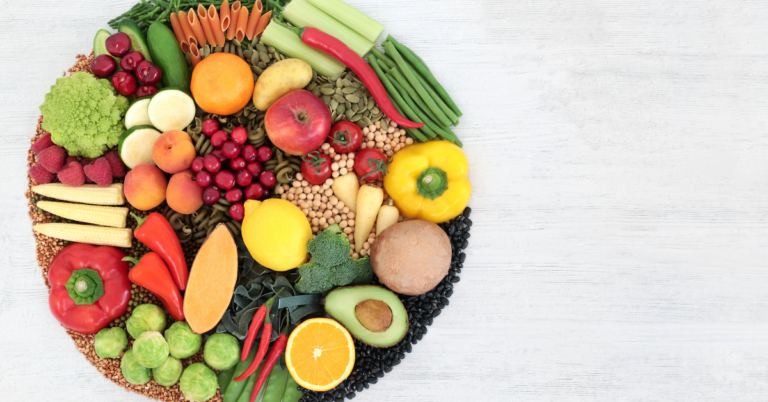Embracing a Plant-Based Lifestyle – A Game Changer for Mind, Body, and the Environment
In recent years, the vegan diet has transcended its niche roots and gained popularity as a mainstream lifestyle choice, particularly among the younger generation. This comprehensive beginner’s guide explores the myriad benefits of embracing a vegan diet and delves into its various subtypes. It’s a movement that has captured the attention of many, shedding light on the significant ways in which individuals can thrive by eliminating animal products from their plates.
The vegan diet represents the strictest form of vegetarianism, going beyond simply limiting meat consumption. It involves eliminating all animal products and by-products, including meat, cheese, dairy, and eggs. For some, the decision to adopt this lifestyle stems from ethical concerns surrounding animal cruelty, while others embrace it for the potential health benefits. Moreover, an increasing number of individuals are turning to veganism due to its positive impact on the environment.
Within the realm of veganism, there are several subtypes, each offering its own unique approach. These include the raw vegan diet, where only uncooked foods are consumed, typically combined with dehydrated and sprouted foods. Additionally, there’s the “raw till 4” approach, which involves adhering to a raw vegan diet until 4 p.m. Other subtypes, such as the high-carb, low-fat (HCLF), and 80/10/10 diets, focus on specific macronutrient ratios, emphasizing the consumption of carbohydrates from fruits, grains, and vegetables while minimizing fat intake.
The Vegan Food List: What to Eat
Unsurprisingly, vegans tend to consume more fruits and vegetables compared to their omnivorous counterparts. As a result, their diets are abundant in fiber, plant protein, and essential minerals. A varied and nutritionally balanced vegan diet includes vegetables, fruits, nuts, nut butter, tofu, tempeh, seitan, plant-based milk, oils, grains, seeds, and legumes. However, it’s crucial to note that the healthiest vegan diet prioritizes whole, minimally processed foods while exercising caution with mock-meat options and dairy-free cheeses, which can sometimes be as unhealthy as their animal-based counterparts due to high sodium and preservative content.
Unveiling the Health Benefits and Weight Loss Potential
Beyond the moral and environmental reasons for adopting a vegan diet, scientific research supports the considerable health benefits associated with this lifestyle. Numerous studies have shown that individuals following a plant-based diet tend to have a reduced risk of obesity, type 2 diabetes, high blood pressure, heart disease, and its complications. Plant-based diets are known to be naturally low in saturated fat and cholesterol, contributing to improved overall health.
Moreover, research suggests that following a vegan diet may lower the risk of certain types of cancer, potentially due to the protective phytochemicals found in plant-based foods, increased fiber intake, and the potential for maintaining a healthier weight. A well-planned vegan diet can be effective for weight management. Plant-based diets tend to be lower in calories and saturated fats while being higher in fiber, which can contribute to a feeling of fullness and weight control.
Lower Risk of Certain Cancers
Some studies suggest that a vegan diet may be associated with a lower risk of certain types of cancer, particularly colorectal cancer. The high intake of fruits, vegetables, and plant-based compounds may play a role in cancer prevention.
Improved Blood Sugar Control
Plant-based diets may contribute to better blood sugar control, which is beneficial for individuals with diabetes or those at risk of developing diabetes. The high fiber content in plant foods helps regulate blood sugar levels.
Digestive Health
A diet rich in fruits, vegetables, whole grains, and legumes provides ample fiber, promoting healthy digestion and preventing constipation.
Improved Kidney Function
Plant-based diets may have a positive impact on kidney function, especially in individuals with kidney disease. The lower intake of animal proteins may reduce the risk of kidney damage.
It’s important to note that a vegan diet, like any diet, requires proper planning to ensure that essential nutrients are adequately obtained. Individuals considering a vegan lifestyle should pay attention to nutrients like vitamin B12, iron, zinc, calcium, omega-3 fatty acids, and protein and consider supplementation or fortified foods if needed.







